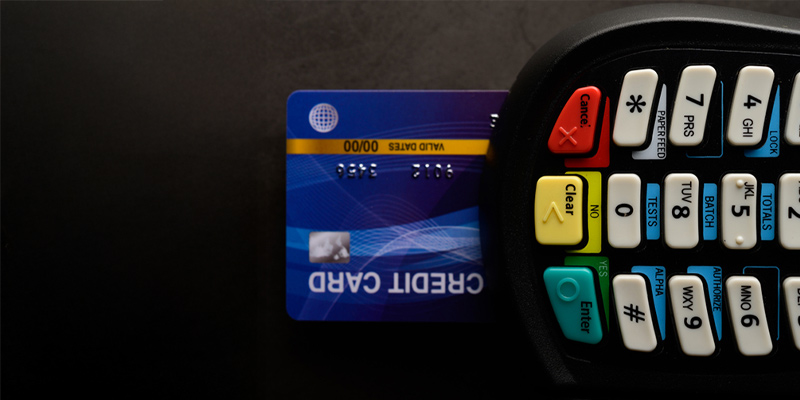Contents
Mastering Credit Card Surcharge Laws by State: The Ultimate 2025 Law Firm Guide
Credit card surcharge laws by state affect how law firms process credit card payments. A credit card surcharge is most firms’ way of recovering processing fees (2%–3% per transaction) rather than paying them. Surcharge can only be done in states and must be brought in cautiously to satisfy both state law and card network regulations. This state-by-state report describes where credit card surcharges are prohibited, where it is permitted (with or without restriction), and how attorneys can successfully apply surcharges. Being familiar with these laws, law offices can optimize revenue by collecting credit card fees and being compliant as well as retaining client trust.
Understanding Credit Card Surcharges and Credit Card Fees
What is a credit card surcharge? It’s an extra fee that a merchant (or law firm) adds to a customer’s bill when the customer pays with a credit card. This surcharge is designed to offset the credit card processing fees that the merchant must pay to the card issuer or payment processor. For example, if a client owes $1,000 and pays by credit card, a 3% surcharge would add $30, helping cover the transaction fee instead of the firm absorbing that cost.
Importantly, surcharges apply only to credit card transactions – not debit cards or prepaid cards. Even if a debit card is run “as credit” (with a signature), it cannot legally be surcharged under card network rules. Businesses can set a minimum purchase for credit card use (up to $10 under federal law), or offer cash discounts, but they cannot add surcharges to debit or ATM card payments. It’s also worth noting the distinction between a surcharge and a convenience fee: a convenience fee is a charge for using an alternative payment channel (for instance, paying over the phone or online when that’s not the merchant’s standard method), whereas a surcharge is specifically for credit card usage. Many states and card networks treat these fees differently.
Law firms and other businesses consider credit card surcharges as a way to avoid losing 2–3% of every transaction to processing fees. Over a year, those fees can add up to thousands of dollars in costs for a firm. By passing the fee to the client (where legal), the firm preserves that revenue. In highly competitive practices or fixed-fee services, recouping processing costs via a surcharge can meaningfully improve profit margins without having to raise base prices. In addition, surcharges create transparency – clients see that a portion of the cost comes from the convenience of paying by card. Clients can always choose a no-fee payment method like cash, check, or ACH transfer if they prefer to avoid the surcharge.
| Annual Card Payments | ~3% Processing Fee Cost | Potential Savings with Surcharge |
| $100,000 | $3,000 | $3,000 (client pays this) |
| $250,000 | $7,500 | $7,500 |
| $500,000 | $15,000 | $15,000 |
| $1,000,000 | $30,000 | $30,000 |
Table 1: Estimated Impact of Credit Card Fees and Surcharging
For example, if your firm bills about $500,000 annually via credit cards, a 3% processing fee would cost roughly $15,000. By implementing a compliant surcharge program, you could recover most or all of that amount. That means thousands of dollars retained in your partnership’s pocket, improving your margins without raising your legal service rates.

Network Card Rules and the Legal Landscape
There is currently no blanket federal law banning credit card surcharges (a federal prohibition on surcharges expired in the 1980s). Today, the main non-state limitations come from the credit card networks themselves. Major card brands like Visa, Mastercard, and American Express permit surcharging under strict conditions. For instance, merchants must cap the surcharge at no more than their processing cost (up to a maximum set by the network). Visa currently limits surcharges to 3% of the transaction (down from a former 4% cap), and Mastercard’s cap remains 4%. Furthermore, surcharges cannot be applied to debit or prepaid cards under network rules. Merchants who choose to surcharge are required to notify their card processor or acquirer (typically 30 days before starting surcharges) and to clearly disclose the surcharge to customers at the point of sale (e.g., with signage or on a payment screen). The surcharge also has to be a separately listed line item on receipts or invoices. so that the customer can see the extra charge. These uniform rules came about after a 2013 class-action settlement between merchants and the card networks, which for the first time allowed surcharging in the U.S. (before 2013, the card companies’ contracts forbade any surcharges).
While the card networks now allow surcharges, individual states have long had their own consumer protection laws on the practice. In the past, about ten states banned credit card surcharges outright. However, many of those laws have been challenged in court over the last decade. Merchants argued that anti-surcharge statutes infringed on their First Amendment rights by controlling how they communicate prices (framing a price difference as a “surcharge” vs. a “discount”). Federal courts have struck down or enjoined no-surcharge laws in several states – for example, in Florida, Texas, and California – leading to a wave of legal changes. As a result, the landscape in 2025 is much more surcharge-friendly than it once was. Most states now permit credit card surcharges in some form, and only a small handful still maintain absolute bans (as we’ll detail below). Notably, in 2023–2024, California enacted a new law (SB 478) broadly prohibiting “junk fees” and requiring that all mandatory charges be included in the advertised price – which has the effect of banning traditional surcharges in California from July 2024 onward. New York also amended its law in 2023: while it technically lifted a prior surcharge ban, New York now requires any surcharge to be reflected in the total posted price for credit (allowing dual pricing but effectively barring a separate line-item surcharge). Meanwhile, other states like Colorado and Kansas recently moved in the opposite direction – reversing prior bans and explicitly allowing surcharges (Colorado in 2021, and Kansas in 2023) with certain conditions. On the regulatory front, credit card fees are attracting attention – Congress has even questioned card network executives about interchange costs – but so far, no federal law caps surcharges. Staying proactive and informed will help your firm turn surcharging into a smart financial strategy rather than a compliance headache.
Law firms must not only follow the law but also any applicable ethics rules. Some state bar associations have addressed whether lawyers can pass along credit card fees to clients. Generally, if a surcharge is permitted by law, bar ethics opinions often allow it if the client is informed (and the fee charged is truly the amount of the processing cost, not an inflated figure). It’s wise to check your jurisdiction’s attorney’s ethics rules or opinions on surcharge. Additionally, be aware of your merchant agreements: card processors may have their own requirements (aligned with the network rules mentioned above) and can penalize merchants for non-compliance. In short, ensure you adhere both to the law and to the fine print from your payment processor when instituting a surcharge program.
State-by-State Surcharge Laws
Many credit card surcharge rules come down to where your law firm and clients are located. U.S. states take a variety of approaches: a few states prohibit surcharges completely; some allow surcharging but impose specific limits or disclosure requirements; and the majority have no special law (defaulting to the card network rules). Below, we break out these categories. Keep in mind that laws can change – always verify the latest statutes in your state, especially if lawmakers have bills pending to modify surcharge regulations.
States That Prohibit Credit Card Surcharges
A small number of states still ban credit card surcharges outright. As of 2025, five states have passed laws on books making it illegal for merchants (including law firms) to add a surcharge when a client pays by credit card. These non-surcharge states are listed below:
| State | Surcharge Ban Status |
| California | Banned (effective Jul 1, 2024) – “Junk fee” law requires all fees in the advertised price. |
| Connecticut | Banned – No surcharges allowed; cash discounts permitted. |
| Maine | Banned – State law prohibits credit card surcharges. |
| Massachusetts | Banned – State law prohibits credit card surcharges. |
| Texas | Banned – State law prohibits surcharges (legal challenges ongoing; convenience fees allowed). |
Table 2: Non-surcharge States
In these states, a merchant cannot post one price and then charge extra for credit card payment at the point of sale. However, cash discounts (offering a lower price for cash/check payments) are generally permitted – the difference is in how the pricing is presented. For example, a business could advertise a “$100 (cash) / $103 (credit)” dual price, but it cannot advertise “$100” and then add a $3 fee at checkout. (This dual pricing approach is common at gas stations – drivers often see one price per gallon for cash and a higher price for credit.) Lawyers in no-surcharge states must price their services to absorb card fees or use alternative methods (like ACH transfers or upfront cash discounts) instead of adding surcharges.
States That Allow Surcharges With Restrictions
Several states allow credit card surcharges but impose specific limitations or conditions on their use. These often include caps on the surcharge percentage or special disclosure requirements to protect consumers from surprises. Key states with such rules are listed in the table below:
| State | Surcharge Restrictions or Conditions |
| Colorado | Allowed up to 2% surcharge (state law cap). |
| New York | Allowed, but cannot exceed actual processing cost; must post total price for credit (no separate surcharge line). |
| New Jersey | Allowed, but surcharge cannot exceed the merchant’s cost to process the transaction. |
| Nevada | Allowed, but surcharge cannot exceed the merchant’s cost of acceptance (enforced by state AG). |
| South Dakota | Allowed up to 4% (or cost of acceptance, if lower); notice required at store entry, point-of-sale, and on receipts. |
| Minnesota | Allowed only if the fee is avoidable (e.g. a cash option exists). Any mandatory fee must be built into advertised price. Cap 5% (state) – effectively 4% under network rules. Signage required. |
| Kansas | Allowed (prior ban overturned in 2021). You must post clear notice of surcharge at point of sale or entry (per 2025 law). |
| Montana | Allowed up to 3% (state law); surcharge must be disclosed to the customer before the transaction. |
| New Mexico | No direct surcharge is allowed unless a cash discount of equivalent value is offered to all customers (i.e. dual pricing only). |
| Georgia | No specific surcharge ban, but only convenience fees are permitted (a fee for an alternative payment channel, with a free payment option also offered). |
Table 3: States with Restriction on Surcharge
Each of the above states has its own nuance. For example, Colorado’s 2% cap is stricter than the usual 3% network cap, and New York’s disclosure rule essentially forces merchants to practice dual pricing (advertising the higher credit price upfront). In Minnesota, the law aims to prevent hidden fees by requiring any unavoidable charge to be in the sticker price. Importantly, proper notice to consumers is a common theme – states like Kansas and Colorado explicitly mandate posting surcharge notices at the business entrance or point-of-sale.
A few states had anti-surcharge laws that are no longer enforced due to court decisions. Florida is a prime example: its law against surcharges was ruled unconstitutional, so surcharging is legal in Florida (with the same disclosure rules as any other state). Oklahoma is similar – the statute bans surcharges, but a federal court invalidated it, meaning merchants in Oklahoma can add surcharges today. Additionally, some states have taken unique approaches – for instance, Illinois sparked controversy by passing a law to forbid credit card surcharges on certain portions of a transaction (such as taxes and tips on a bill). (A federal court partially blocked Illinois’ law from applying to nationally chartered banks, showing how contentious these fee rules can become.) Always stay updated on your state’s latest stance, as these rules continue to evolve.
States Without Surcharge-Specific Laws
Many states do not have any specific laws banning or limiting credit card surcharges. In these jurisdictions, merchants are free to add a surcharge as long as they comply with the general card network rules and standard consumer protection laws (e.g. no deceptive advertising). Practically, this means following the 3% cap (or your cost of acceptance), not surcharging debit cards, and giving clear notice to customers.
States with no surcharge-specific prohibitions include Alabama, Alaska, Arizona, Arkansas, Delaware, District of Columbia, Florida, Hawaii, Idaho, Illinois, Indiana, Iowa, Kentucky, Louisiana, Maryland, Mississippi, Missouri, Nebraska, New Hampshire, North Carolina, North Dakota, Ohio, Oklahoma, Oregon, Pennsylvania, Rhode Island, South Carolina, Tennessee, Utah, Vermont, Virginia, Washington, West Virginia, Wisconsin, and Wyoming. In these states, a law firm can choose to add a credit card surcharge to client bills (often up to 3%) to recoup processing costs. Of course, transparency remains important everywhere – even where surcharges are legal, a firm should communicate the fee to clients upfront to maintain trust and avoid surprises. But from a legal standpoint, these states impose no additional hurdles beyond what the card brands require.
Implementing Surcharges at Your Law Firm
If you’ve determined that surcharge is legally permitted in your jurisdiction and you want to move forward, it’s crucial to implement it correctly. Here are the key steps and best practices to follow for a compliant surcharge program:
Confirm legality – Verify that credit card surcharges are allowed in your state (and locality) and review any specific state restrictions or bar association ethics opinions. Ensure you are only passing on the actual processing fee and not treating it as an arbitrary markup.
Apply to credit transactions only – Never surcharge debit cards, ATM cards, or prepaid cards. Only add the fee to bona fide credit card payments. (Most payment systems can detect card type – enabling surcharge only for eligible cards.)
Adhere to surcharge caps – Set your surcharge rate equal to or below your effective merchant processing cost. In no case should it exceed the legal limit (generally 3% under card network rules, or lower if your state law caps it at 2%). The goal is to offset fees, not profit from surcharges.
Notify your processor/networks – Visa and Mastercard require that merchants give advance written notice (typically 30 days) to your payment processor or acquirer before you start surcharging. Check with your payment processing provider for the proper procedure to provide this notice.
Disclose the surcharge to clients – Transparency is essential. Clearly inform clients of the credit card surcharge before they pay. This can be done by including a notice on your invoice or payment page (e.g., “3% fee will be added for credit card payments”), and by posting a visible sign in your office if you accept in-person payments. The disclosure should be in plain language and highly visible – don’t hide it in fine print.
Line-item the surcharge on bills – When you charge the client, list the credit card surcharge as a separate line item on the receipt or invoice (e.g., “Credit Card Surcharge: $30”). Do not simply fold it into the overall price without labeling it. This clarity not only keeps you compliant with card rules but also helps clients understand the charge.
Refund proportionally if needed – If a client receives a refund on a billed amount, remember that the surcharge should be refunded proportionally as well. (For example, if a client paid $1,000 + $30 surcharge and later you waive the $1,000 fee, you should also return the $30.) This is required by the card network policy to ensure surcharges only cover costs actually incurred.
Leverage legal billing software – Consider using law practice management or billing software such as RunSensible that can automate surcharge compliance. The right system will automatically avoid charging illegal fees (for example, by detecting and excluding debit card transactions), calculate the correct surcharge amount, and display the required notices to clients. Using a dedicated legal payment solution reduces manual work and helps ensure you don’t run afoul of any technical requirements (e.g., preventing surcharges on trust account deposits).
Monitor and document – Keep a record of your surcharge rates and ensure they align with your actual processing fees. Periodically double-check the laws in your state (and any state where you operate) because regulations can change. Staying proactive will help you adjust your policy if needed and remain compliant over time.
Charging Ahead with Surcharges: The Bottom Line
Most U.S. law firms today can take advantage of credit card surcharges – only a few states still say “no” outright. By understanding your state’s law and following the guidelines, your firm can recoup thousands of dollars in credit card processing fees each year that would otherwise cut into your profits. The key is to stay within the legal lines: if you practice in one of the few no-surcharge states (or have clients there), respect those prohibitions. If you’re in one of the many states that permit surcharges (or have permissible workarounds), implement them transparently and within the allowed limits.
This is where being informed about credit card surcharge laws by the state becomes crucial. Each jurisdiction has its own regulations, and keeping up to date with them ensures compliance while maximizing revenue opportunities. In practice, passing on credit card fees to clients, when done in compliance and communicated clearly, can enhance your firm’s bottom line without alienating clients. Modern consumers are increasingly familiar with the concept of paying a bit extra for the convenience of credit – especially in an age of rising service fees and cash discounts across industries. If clients are aware and the fee truly reflects your cost, it’s usually considered acceptable.
Still, always check your specific state’s ethics rules or opinions – a few jurisdictions may discourage surcharges by lawyers, treating those fees as part of overhead. By doing so, you’ll strike the right balance between maximizing revenue and maintaining client goodwill. Staying educated on credit card surcharge laws by state and implementing them carefully can turn a mandatory expense into an opportunity for your law firm’s financial health.
Streamline Your Practice with RunSensible
RunSensible is an all-in-one legal practice management platform that empowers law firms to operate more efficiently. From case management and client communication to billing and online payments (with trust accounting compliance), RunSensible Pro provides the tools you need on a unified platform. You can automate invoicing, set up compliant credit card payment processing (with features to handle surcharges correctly and avoid errors), and even manage trust accounting and reporting – all in one place. By using RunSensible, your firm saves time, ensures compliance, and keeps more of your revenue. Ready to streamline your practice and boost your bottom line? Try RunSensible for free today to see how it can transform your firm’s billing, compliance, and overall efficiency.
FAQs
Are credit card surcharges legal in all states?
No. Credit card surcharges are legal in most U.S. states, but a few places ban them. As of 2025, four states (Connecticut, Maine, Massachusetts, and California) explicitly prohibit merchants from adding a surcharge for credit card payments. Another state, Texas, has a law against surcharges as well, though it has been challenged in court. In addition, Puerto Rico (a U.S. territory) bans credit card surcharges. In all other states, surcharge is allowed, either freely or with some conditions (like percentage caps or disclosure rules).
How much can I charge as a credit card surcharge?
In general, you can charge up to the amount of your actual credit card processing fee, but not more. Major card networks cap surcharges at a maximum of 3% of the transaction (Visa’s rule as of 2023) or up to 4% (Mastercard’s cap), whichever is lower and not above your cost of acceptance. Many states simply mirror this rule. However, a few states impose lower caps by law.
What is the difference between a surcharge, a convenience fee, and a cash discount?
Each term is distinct. A credit card surcharge is an extra fee added specifically for paying with a credit card to offset the merchant’s processing cost. A convenience fee is a charge for using an alternative payment channel (e.g., an extra fee for paying online or by phone if the business’s standard method is in-person payment). It’s not specifically for card use, but rather for the convenience of that alternate method. A cash discount is the opposite of a surcharge: the business gives a discount to customers who pay with cash, effectively charging a higher price to those who pay by credit card.
What rules do Visa and Mastercard have for surcharging?
The major card networks allow surcharges under strict conditions. In summary: you must notify your card processor in advance (typically 30 days) before implementing surcharges; you can apply the fee only to credit card transactions (no surcharges on debit or prepaid cards); the surcharge must be no greater than your actual processing cost (and is capped by network rules – Visa’s cap is 3%, Mastercard’s is 4%); and you must clearly inform customers about the surcharge (with signs or on a payment page) and list it separately on the receipt or invoice.
Can law firms pass credit card processing fees to clients ethically?
In most jurisdictions, yes – provided it’s done transparently and only for the actual cost of the processing fee. If surcharging is legal in your state and you charge exactly what the processor charges (with no markup), most bar association ethics opinions find it permissible to pass that fee on to clients. The crucial factor is disclosure: inform the client upfront (for example, in the engagement agreement) that a credit card payment will include a processing fee.
References
- https://merchantcostconsulting.com/lower-credit-card-processing-fees/credit-card-surcharge-laws-by-state/
- https://www.lawpay.com/about/blog/credit-card-surcharge-rules/
- https://www.paymentsdive.com/news/third-of-us-small-businesses-add-credit-card-surcharges/739018/
- https://www.bankrate.com/credit-cards/business/merchants-guide-to-credit-card-processing-fees/
Disclaimer: The content provided on this blog is for informational purposes only and does not constitute legal, financial, or professional advice.







